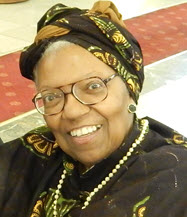Vernellia R.Randall, The Misuse of the LSAT: Discrimination Against Blacks and Other Minorities in Law School Admissions, 80 Saint John's Law Review 107-139 (Winter 2006) (103 footnotes) (Graphs/Tables Omitted) (Full Document)

It is not the blatant No Blacks Allowed kind of discrimination. It is institutional racism, which is harder to eliminate because it is so insidious. Institutional racism occurs where an institution adopts a policy, practice, or procedure that, although it appears neutral, has a disproportionately negative impact on members of a racial or ethnic minority group. In the case of law schools, the institutional racism is the use of the Law School Admissions Test (LSAT) as the sole or determining factor in admission, and specifically, the use of an LSAT cut-off score below which few, if any, candidates are admitted.
This misuse of the LSAT is devastating to all minorities, but is particularly devastating for Blacks and Latinos. Using the LSAT cuts in half the number of Black and Puerto Rican students who would be admitted based on their performance in college as reflected in their Undergraduate Grade Point Average (UGPA). Over the last ten years, the enrollment of Blacks and Mexican Americans in law schools has decreased. This decrease has come about despite an increase in the number of applications, a rise in average UGPA of these applicants, and an increase in their average LSAT score.
Not only is this problem clear evidence of institutional racism, but it is also evidence of systemic racism since many institutions--including law schools, the American Bar Association (ABA), and U.S. News & World Report--could change their policies, practices, or procedures to use the LSAT ethically and responsibly.


